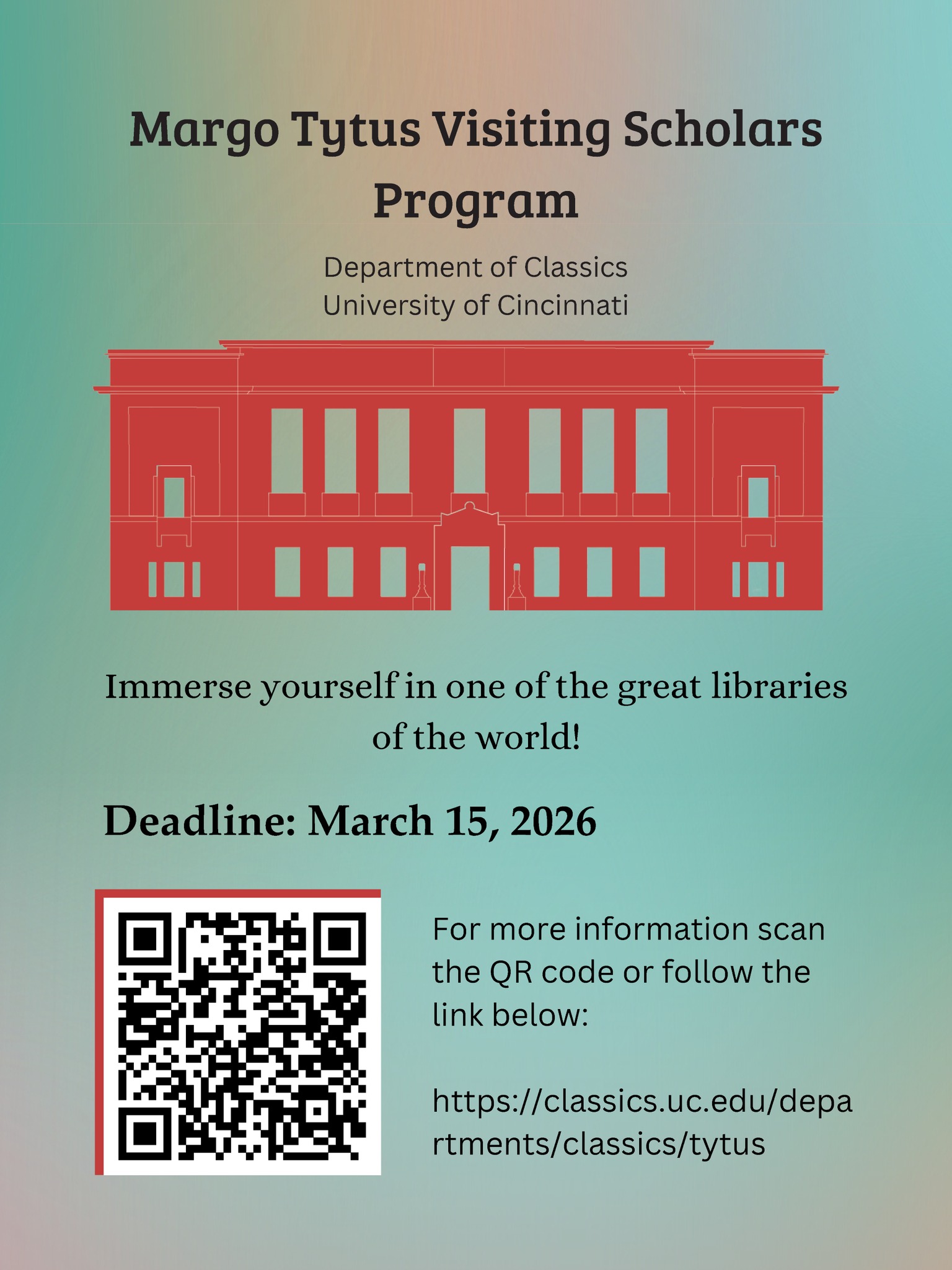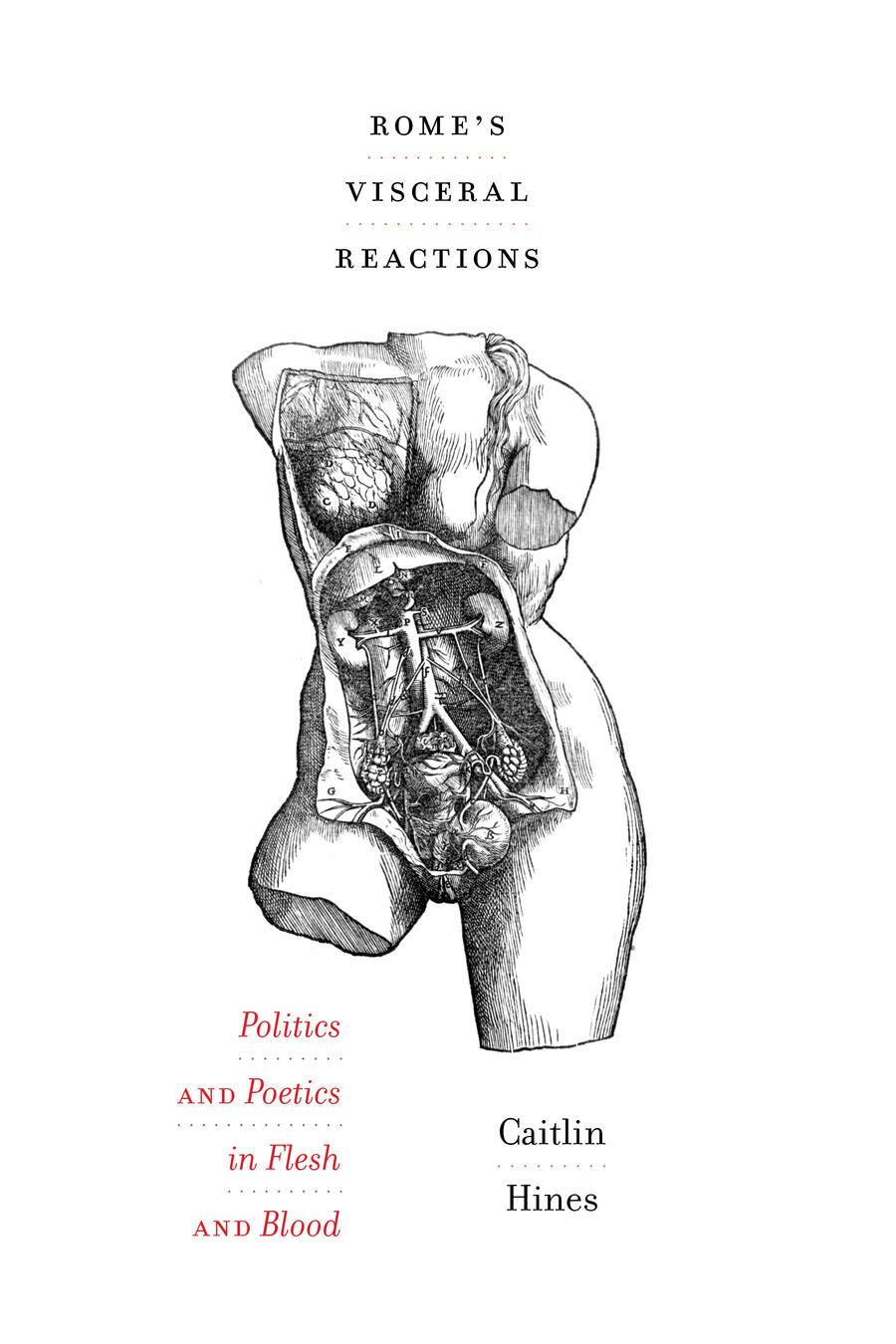The University of Cincinnati Classics Department is one of the most active and largest centers for the study of the Greek and Roman Antiquity in the United States. Eighteen full-time faculty members, four research associates, and four Rawson Visiting Scholars specialize in Classical philology, ancient history, and archaeology, including Greek prehistory.
About thirty-five graduate students are in residence at any given time, while others spend a year or more abroad to study or conduct research. In the heart of the Department is the recently renovated Burnam Classical Library, the world's most comprehensive library for advanced research in Classics (with some 300,000 volumes). The department's Tytus Fellowships bring an additional nine to twelve researchers to the Department each year, in addition to many shorter-term visitors. About thirty undergraduate majors profit from the vibrant scholarly community, while an Outreach Program takes faculty and graduate students to more than 100 area schools each year. The department's lecture series, including those sponsored by the Archaeological Institute of America, attract audiences from the larger academic and lay community in the Cincinnati area. The Department edits Nestor, a bibliographic resource for Aegean Prehistory, and sponsors continuing series of publications for Pylos, Keos, and Troy. Faculty organize or participate in archaeological fieldwork in Greece at Pylos, Knossos, Isthmia, Anavlochos and the Athenian Agora, in Italy at Pompeii and Tharros in Sardinia, in Turkey at Gordion, and in Israel at Caesarea Maritima.
Contact
Department of Classics
410 Blegen Library
PO Box 210226
Cincinnati, Ohio 45221-0226
Phone | (513) 556-3050
Fax | (513) 556-4366
classics@uc.edu
Latest News
-
Tytus Fellowships and Cincinnati Summer Residencies
 The call for applications is open!Dealine: March 15, 2026More information available here: https://classics.uc.edu/humanities/classics/tytus
The call for applications is open!Dealine: March 15, 2026More information available here: https://classics.uc.edu/humanities/classics/tytus -
Rome's Visceral Reactions, by Caitlin Hines
 Congratulations to Caitlin Hines on the publication of her book, Rome's Visceral Reactions: Politics and Poetics in Flesh and Blood!It was a great pleasure to start the semester by celebrating this achievement.For more information: https://press.umich.edu/Books/R/Rome-s-Visceral-Reactions2
Congratulations to Caitlin Hines on the publication of her book, Rome's Visceral Reactions: Politics and Poetics in Flesh and Blood!It was a great pleasure to start the semester by celebrating this achievement.For more information: https://press.umich.edu/Books/R/Rome-s-Visceral-Reactions2 -
UC Faculty, Students, and Friends Visit the Getty Exhibition with Sharon Stocker and Jack Davis
On Sunday, January 11, a group of UC faculty, including Associate Dean Jay Twomey, graduate students, alumnae, and friends toured the exhibition "The Kingdom of Pylos: Warrior-Princes of Mycenaean Greece" at the Getty Villa. The visit was guided by excavators Sharon Stocker and Jack Davis. According to the Getty staff, the exhibition was a tremendous success. It closed on January 12 and will next be on view at the Hellenic National Archaeological Museum in Athens.

-
Prof. Peter van Minnen and the Corpus of Latin Texts on Papyrus

Professor Peter van Minnen in the John Miller Burnam Classical Library. Photo: Grace DeZarn. Congratulations to Professor Peter van Minnen, who is one of the main contributors to the six quarto volumes of the Corpus of Latin Texts on Papyrus (Cambridge, 2025)!
Welcome Event - Tytus Fellows and Visiting Scholars
Welcome Event for our Tytus Fellows and Visiting Scholars for Spring 2026.
Martina Russo on Tiberius
response to Marcius Hortalus, the grandson of the famed orator Quintus Hortensius Hortalus, who
appealed for financial assistance and, in his request, addressed Tiberius and the Senate, stressing that having children was not his idea at all. The significance of this passage in Tacitus’ historiography is threefold. First, it marks the first instance of direct speech attributed to Tiberius in the Annales.
Second, it enables us to explore the intricate relationship between Tiberius’s internal politics and
Augustus, who is prominently referenced by both Hortalus and Tiberius in their speeches. Third, it
provides a cross-section of the dynamics between the princeps and the senators in the...
